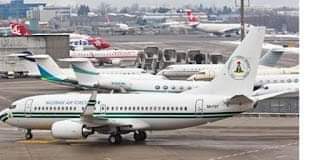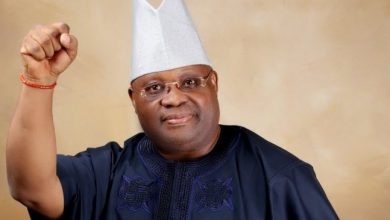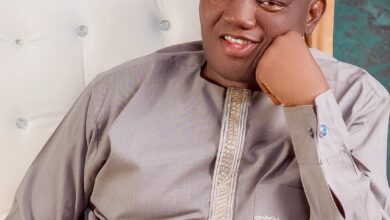Understanding the Who, Where, and Why of How The French Court Authorised a Chinese Firm to Seize Three Nigerian Presidential Aircrafts

Introduction
On Wednesday 14 August 2024, news broke that a French court had ordered the seizure of three presidential jets belonging to the Federal Republic of Nigeria as part of efforts by a Chinese construction firm, Zhongshan Fucheng Industrial Investment Co. Ltd to enforce a $70 million London-seated foreign arbitral award obtained against the Federal Republic of Nigeria on 26 March 2021.
Less than a week earlier, the United States Court of Appeals for the District of Columbia had rejected Nigeria’s sovereign immunity defence in relation to the same award. Meanwhile, the same award had also resulted in the seizure of two properties belonging to Nigeria in Liverpool, England in June 2024.
Who is Zhongshan Fucheng? What is the origin of its dispute with Nigeria? How or why is Zhongshan Fucheng able to approach different courts in different jurisdictions to enforce the same arbitral award? These and related questions form the basis of this publication.
What are the Background Facts?
In 2001, the People’s Republic of China and Nigeria entered into a Bilateral Investment Treaty (“BIT” or “the Treaty”) to encourage investment between the two countries. As part of the provisions of the BIT, each country agreed to treat each other’s investors fairly and to protect each other’s investments. The BIT also afforded the investors of either country the right to arbitrate any dispute with the other country.
In 2013, the Ogun State Government (OGSG) entered into a Joint Venture Agreement (JVA) with a company known as Zhongfu International Investment (NIG) FZE (Zhongfu), a wholly owned subsidiary of Zhongshan Fucheng Industrial Investment Co. Ltd (Zhongshan) to develop the Ogun Guangdong Free Trade Zone, in Ogun State.
Sometime in 2016, after three years of development of the Zone and millions of US Dollars in investments, a dispute arose between OGSG and Zhongfu which resulted in the abrupt termination of the JVA by OGSG. Beyond that, the dispute also resulted in the use of threats by officials of OGSG and the Nigeria Export Processing Zone Authority (“NEPZA”) with the aim of getting Zhongfu to vacate the Zone and its personnel to leave Nigeria. These threats were later carried out and one of Zhongfu’s personnel, Mr. Wenxiao Zhao was arrested at gunpoint, physically beaten, detained for 10 days by the Police, and was subsequently released on bail. The Police also repeatedly asked for the whereabouts of another Zhongfu personnel, Dr. Han, but the latter was never arrested. In October 2016 both Mr. Zhao and Dr. Han fled Nigeria and never returned.
Aggrieved with the treatment they received at the hands of OGSG; the Police; and NEPZA, Zhongshan commenced arbitration proceedings against Nigeria on 30 August 2018 alleging a breach of Articles 2, 3, and 4 of the China-Nigeria BIT and seeking compensation under Article 9 of the Treaty.
What did the Dispute have to do with Nigeria?
Zhongshan brought the treaty claim against Nigeria on grounds that OGSG, the Nigeria Police and NEPZA are all entities whose actions are attributable to Nigeria in international law. In opposition to the claim, Nigeria contended inter alia that Zhongshan’s complaints were not about the conduct of the Federal Republic of Nigeria (but principally those of Ogun State) and therefore Zhongshan had no claim against Nigeria.
In resolving this issue, the Tribunal, after accepting that Zhongshan’s case was primarily based on the actions of Ogun State as well as those of the Nigeria Police and NEPZA, all of which have an independent existence under Nigeria’s municipal law, nevertheless relied on the principles of customary international law and in particular the provisions of the Articles on Responsibility of States for Internationally Wrongful Acts adopted by the International Law Commission in August 2001 (“the ILC Articles”), and held that the claim was validly brought against Nigeria.
Article 2 of the ILC Articles provides that, “[t]here is an internationally wrongful act of a State when conduct consisting of an act or omission (a) is attributable to the State under international law; and (b) constitutes a breach of an international obligation of the State.” Article 4.1 on its part provides that “[t]he conduct of any State organ shall be considered an act of that State under international law, whether the organ exercises legislative, executive, judicial or any other functions, whatever position it holds in the organisation of the State, and whatever its character as an organ of the central government or of a territorial unit of the State.”
Furthermore, Article 5 of the ILC Articles provides that, ” the conduct of any person or entity which is not an organ of the State under article 4, but which is empowered by the law of that State to exercise elements of the governmental authority shall be considered an act of the State under international law…”
What is Arbitration?
Arbitration is a private dispute resolution mechanism whereby two or more parties agree in writing to have their dispute (present or future) resolved in a binding way, not through litigation in national courts, but by a person or group of persons called the arbitrator(s), whose decision is referred to an award and which is capable of being recognised and enforced in the same way as a judgment of a national court.
The arbitral tribunal that heard the dispute between Zhongshan and Nigeria comprised Lord Neuberger of Abbotsbury as the Chairman, Mr Matthew Gearing, KC (appointed by the Claimant) and Mr Rotimi Oguneso, SAN (appointed by Nigeria).
What did the Arbitral Tribunal Decide?
In its award published on 26 March 2021, the arbitral after a due consideration of all the jurisdictional points raised and argued by Nigeria, as well as the merits of the claim, found for the Claimant, Zhongshan and awarded compensation in the sum of US$55,675,000 as well as US$75,000 for moral damages plus interest of US$9,400,000 and costs of £2,864,445.
What are the Options Open to an Award Debtor?
Under Article V of the New York Convention, there is limited scope for an award debtor to resist the recognition and/or enforcement of an award. The circumstances under which a court may lawfully refuse the recognition and enforcement of an award include where the arbitral award arises from a dispute which is not capable of settlement by arbitration or where the recognition or enforcement of such award would be contrary to the public policy of the enforcing country. The consequence of refusing to recognise and/or enforce an award in one jurisdiction, is that the award remains valid and binding, and therefore potentially capable of being recognised and/or enforced in another jurisdiction.
Intrinsic in the same Article V of the New York Convention is the fact that an award may also be set aside in its entirety. Except in very few jurisdictions, the consequence of setting aside an award is that the award ceases to be binding and therefore incapable of recognition or enforcement. This is the reason why the jurisdiction to set aside an award is not to be exercised lightly and indeed that honour is only reserved for the national courts of the country in which the award was made (i.e., the seat of the arbitration) or the country under whose law, the award was made, if different.
From the facts publicly available, Nigeria challenged the award before the Commercial Courts of England and Wales under Section 67 of the English Arbitration Act 1996 on some of the same jurisdictional grounds that had been considered and dismissed by the arbitral tribunal, and also on a novel ground, that the arbitration clause in the BIT was invalid.
What happened to Nigeria’s Challenge?
For reasons that are either inexplicable or remain unknown, Nigeria withdrew the Section 67 challenge a few days to the hearing.
What happened next?
The end product of arbitration, the whole essence of arbitral process, is the arbitral award. There is in existence, the 1958 Convention on the Recognition and Enforcement of Foreign Arbitral Awards (the New York Convention) which has been ratified by more than 170 Contracting States including Nigeria. Article III of the New York Convention imposes an obligation on each Contracting State to recognise arbitral awards as binding and to enforce them.
In view of Nigeria’s withdrawal of her Section 67 challenge, the coast was therefore clear for Zhongshan to apply for the recognition and enforcement of the award. This is precisely what Zhongshan did by applying to the English Commercial Court to enforce the award on an ex parte basis.
In December 2021, Mrs. Justice Cockerill granted the ex-parte enforcement order but granted Nigeria the right to challenge the order within 74 days of being served. Nigeria was served with the enforcement order on 30 May 2022 which meant that the deadline for Nigeria to challenge the order would expire in August 2022. As has become characteristic of Nigeria in international arbitration, the State failed to apply to challenge the order within time. It was only in September 2022, after the 74-day deadline had elapsed, that Nigeria applied to the court for extension of time to challenge the order. Even then, Nigeria missed a further filing deadline in reply to Zhongshan’s response and was forced to request another extension.
What did the English Court Decide?
In December 2022, Cockerill J. refused to grant the extension requests and found that Nigeria had given “no good reason” for the delay. Thereafter, Nigeria applied for permission to appeal, and this was refused. Nigeria then appealed to the English Court of Appeal. In its judgment delivered on 20 July 2023, the Court of Appeal refused to allow Nigeria to challenge the enforcement order on the basis that the grounds of appeal that Nigeria proposed to raise were hopeless.
On 16 June 2023 and 18 August 2023, the English Commercial Court made interim charging orders in respect of two properties belonging to Nigeria in the United Kingdom, 15 Aigburth Hall Road, Liverpool (“Aigburth”) and Beech Lodge, 49 Calderstones Road, Liverpool (“Beech Lodge”). Zhongshan estimates that both properties are likely to be worth between perhaps £1.3 and £1.7 million. On 14 June 2024, the Court granted a final charging order over the two properties.
Is it an Abuse of Court Process to Seek Multiple Avenues for Enforcement?
It should also be noted that in addition to the English enforcement proceedings, Zhongshan also brought enforcement proceedings in the United States, Belgium, France, the British Virgin Islands, and Quebec. This raises the question whether it is an abuse of court process to seek multiple avenues for enforcement.
Thanks to the instrumentality of the New York Convention, upon the publication of an arbitral award, such an award becomes potentially enforceable in any of the 170 Contracting States to the Convention. What this means is that an award creditor, such as Zhongshan is at liberty to approach the courts of any of Contracting States to the Convention (where Nigeria has assets) to apply for the recognition and enforcement of the award. In practice, this often involves the use of the mechanism of asset tracing to ascertain where an award debtor has assets. Ostensibly, this is what revealed that Nigeria had private jets in France. As the English Court of Appeal stated, “Parties are entitled to take as many types of enforcement action as they see fit to recover their debt” [para 63].
What did the Quebec Court Decide?
In Quebec, Zhongshan applied for a pre-judgment order to seize a Bombardier 6000 Jet (type BD-700-1A10) with Tail number M-MYNA and serial number 9471, registered with the Isle of Man Aircraft Registry and belonging to Nigeria. On 25 January 2023, the Quebec Court granted the order.
On April 19, 2023, Nigeria was validly notified of the legal action in Quebec through diplomatic channels. Nigeria did not submit its response within the time limit set by the Code of Civil Procedure, which was before 18 June 2023. On July 12, 2023, Zhongshan applied for a default judgment, and on November 17, 2023, the Court set a hearing date of February 16, 2024, for the default judgment application.
It was only on 11 January 2024, i.e. nine months after being notified of Zhongshan’s request to have the arbitral award recognized in Quebec, that Nigeria submitted a response in the current case. Also, it was only on February 15, 2024, the day before the scheduled exparte hearing, that Nigeria communicated and submitted its request to be relieved from its failure to respond in time citing the 2023 elections in Ogun State and the delay in appointing the Attorney General.
The Quebec clearly “struggled to understand Nigeria’s delay in acting” and ultimately dismissed Nigeria’s request to be relieved from its default of responding in time. However, because of the fundamental nature of the defence raised by Nigeria, state immunity, the Court ordered that the case proceed to a full hearing on the merits, where the issue of state immunity, along with other potential defenses, can be thoroughly examined.
What did the US Court Decide?
Zhongshan also applied to a US District Court to enforce the award under the US Federal Arbitration Act. Nigeria challenged the petition for enforcement contending inter alia that it was immune from suit in the US and the Federal Sovereign Immunity Act (“FSIA”) exception did not apply to Zhongshan’s petition. The District Court denied Nigeria’s motion to dismiss and held that since the award was governed by the New York Convention, it fell within the FSIA exception. Aggrieved, Nigeria appealed to the US Court of Appeals.
In its judgment delivered on 9 August 2024, the US Court of Appeals by a majority of 2-1, affirmed the decision of the District Court and dismissed Nigeria’s appeal.
What did the French Court Decide?
It is against the foregoing background that a Paris Judicial Tribunal granted an order authorising Zhongshan to seize the aircraft (i) Dassault Falcon 7X, registration number 5NFGU (serial number 090), (ii) Boeing 737-7N6/BBJ, registration number 5N-FGT (serial number 34260/1746), and (iii) Airbus A330-243, registration number 5N-FGA (serial number 1053), belonging to the Federal Republic of Nigeria, stationed respectively at the airport of Paris-Le Bourget and Basel-Mulhouse international airports.
Concluding Remarks
On 23 October 2023, the English High Court delivered a landmark decision setting aside a USD 11 billion arbitral award obtained by a British Virgin Islands (“BVI”) company, Process and Industrial Developments Limited (“P&ID”), against the Federal Republic of Nigeria and Nigerians heaved a collective sigh of relief. Less than a year later, the country once again finds itself enmeshed in another saga.
Although compared to the P&ID dispute, the sum involved in the Zhongshan claim is small, it is nonetheless a substantial sum in its own right and continues to accrue interest. More ominously, several parallels can be drawn in the handling of both cases especially with respect to Nigeria’s propensity for late filings which leaves a lot to be desired. What is clear is that there are still several instalments left in this saga. It now remains to be seen what comes next.
CREDIT:
This news post authored by Adewale Atake, SAN; Partner and Head, Dispute Resolution via adewale.atake@templarslaw.com and Orji Agwu Uka, MCIArb, Senior Associate, Dispute Resolution via orji.uka@templars-law.com of the law firm, Templars was first published here.




